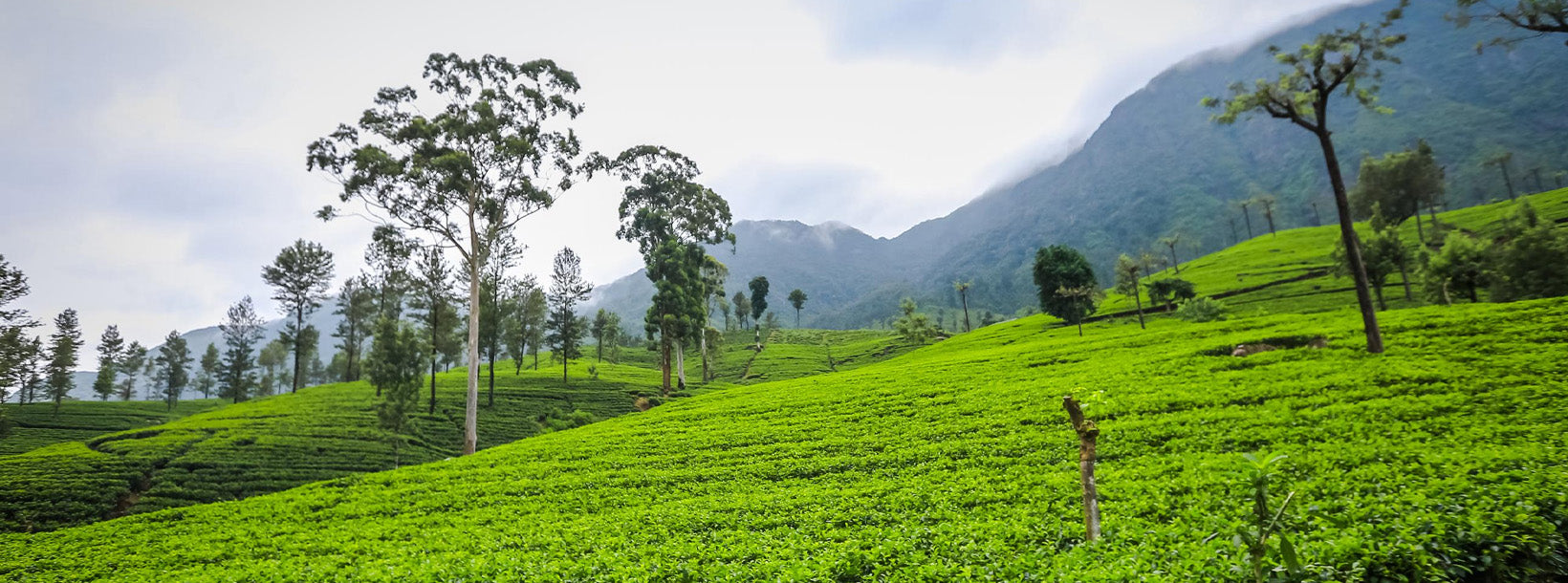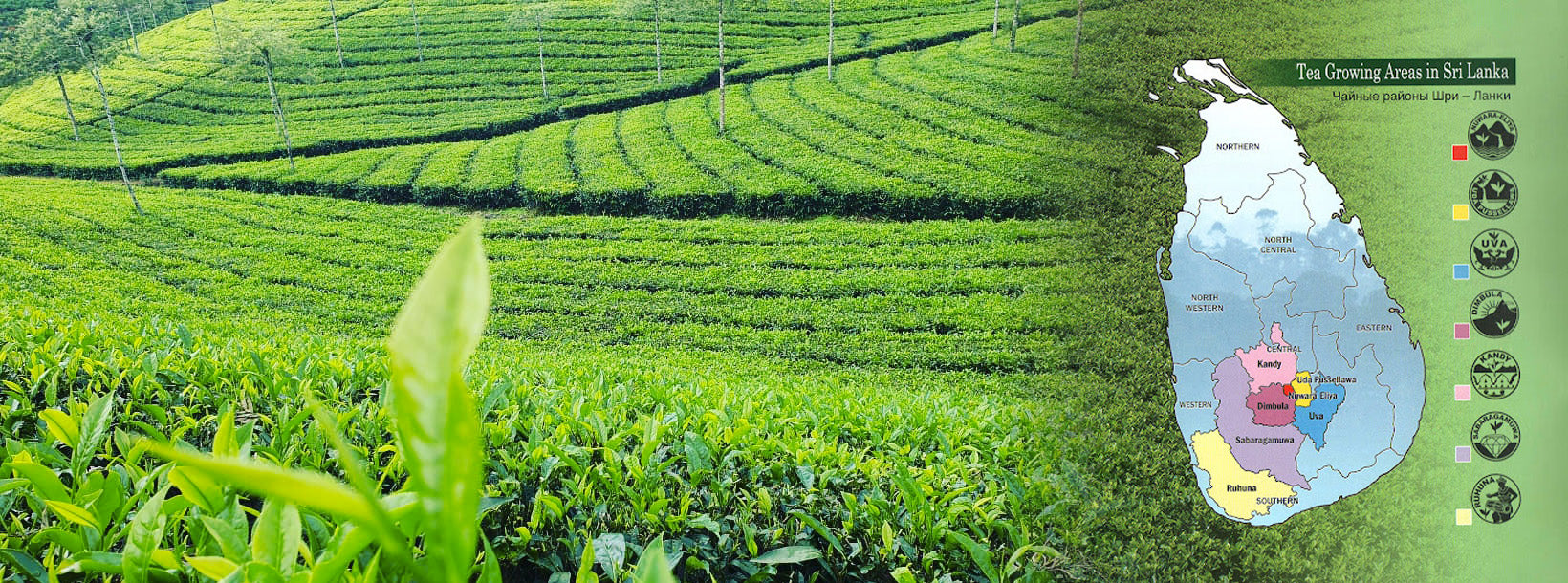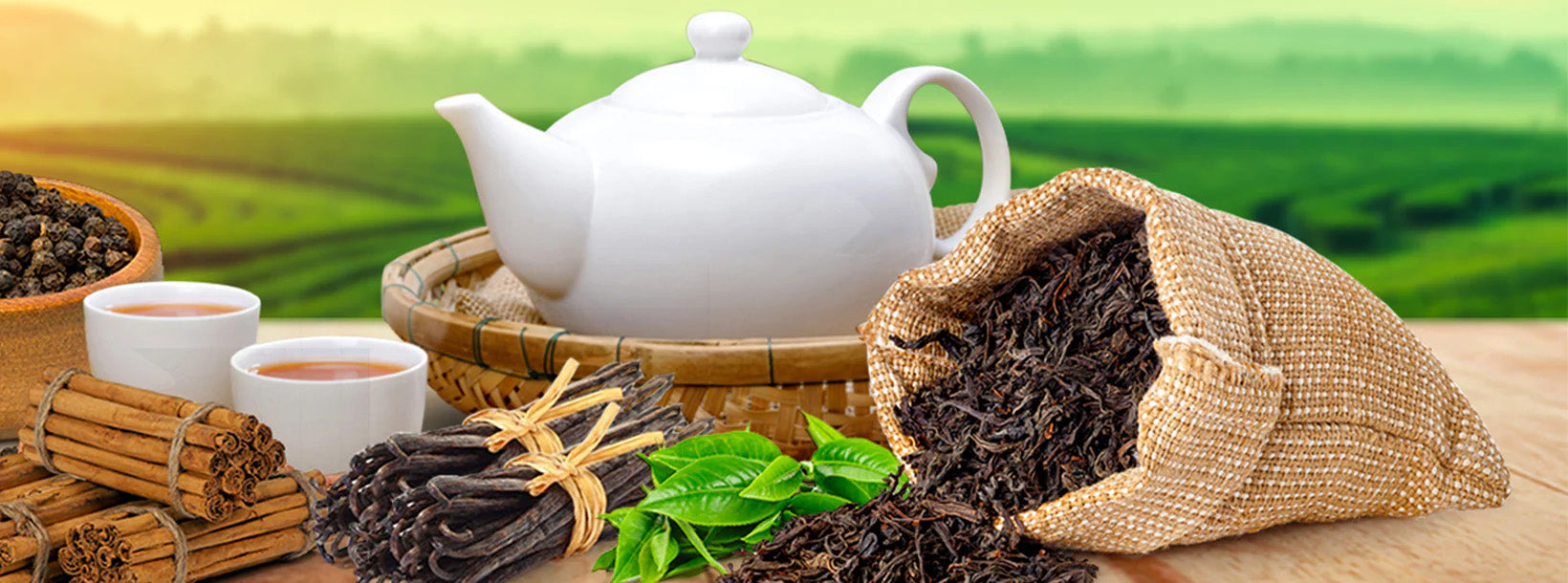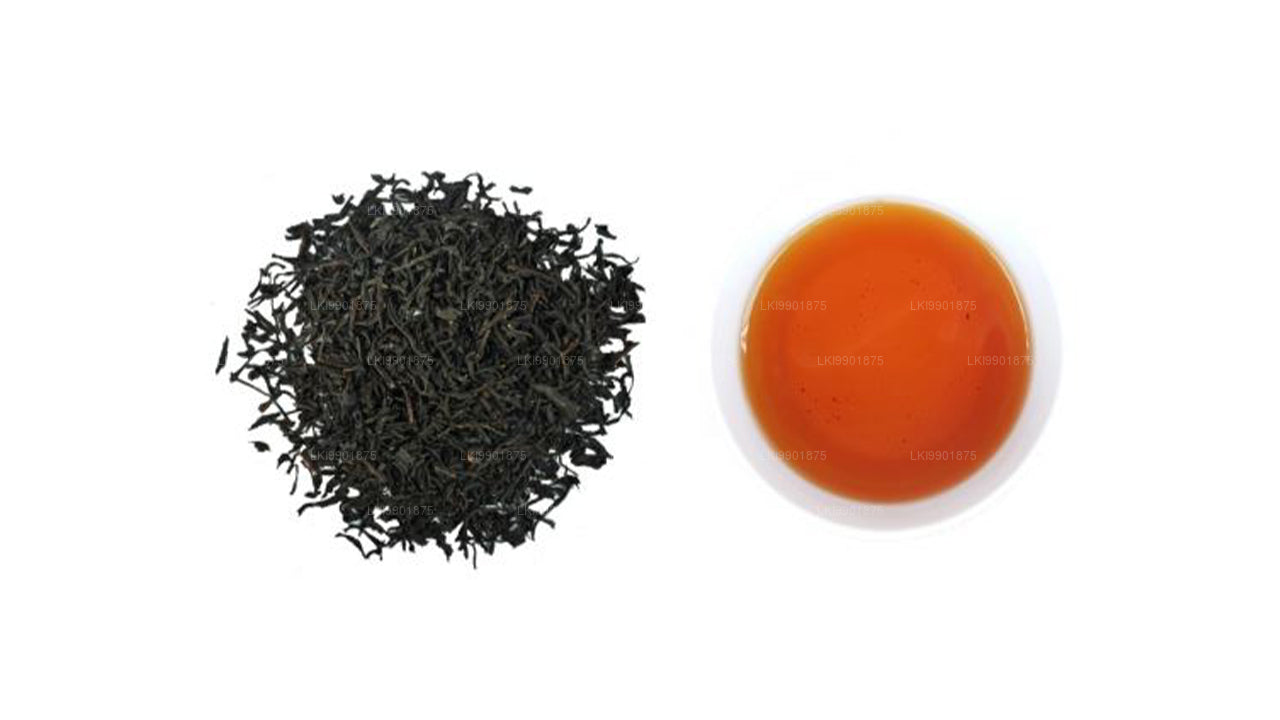
Fazendas de chá
As plantações de chá do Sri Lanka, localizadas principalmente nas terras altas centrais, são famosas por produzir alguns dos melhores chás do mundo. Essas plantações exuberantes, como as de Kandy, Nuwara Eliya e Hatton, oferecem paisagens cênicas e uma rica história. As plantações contribuem significativamente para a economia do país, exportando chá do Ceilão de alta qualidade para todo o mundo.

Regiões de chá do Ceilão
A bebida na sua xícara tem uma história para contar. Ela fala de colinas ondulantes, sol abundante e províncias verdejantes. No Sri Lanka, as províncias do centro e do sul produzem a maior parte do chá. Altitudes e microclimas variados influenciam o sabor, a cor, o aroma e a sazonalidade característicos do chá do Ceilão.

Graus de chá preto do Ceilão
O chá do Ceilão, como sabemos hoje, vem em diferentes variedades, com sabores e aromas únicos. Além da variedade de chás, existem variedades de graus em que o chá do Ceilão foi separado.
Halpewatte Tea Factory
Halpewatte Tea Factory, located in the picturesque hill town of Ella, Sri Lanka, is one of the most renowned tea factories in the region. It offers tourists a unique insight into the world of Ceylon tea production, a key part of the country’s cultural and economic identity. Visiting the factory is a must-do experience for those wanting to learn about Sri Lanka’s rich tea heritage.
Upon arriving at the factory, tourists are welcomed with a guided tour of the facility, where they can witness the tea-making process firsthand. The tour typically starts with an introduction to tea cultivation, explaining how the tea leaves are harvested from the lush, green plantations surrounding the factory. Visitors are shown the traditional methods of plucking tea leaves, often by hand, and are given an overview of how different varieties of tea, such as black, green, and white tea, are processed.
Inside the factory, tourists can observe the machinery and processes used to turn fresh tea leaves into high-quality Ceylon tea. The steps of withering, rolling, fermenting, drying, and grading are explained in detail, showcasing how each stage contributes to the flavor and quality of the final product. The factory produces a variety of teas, each with distinct flavors, textures, and aromas.
A highlight of the tour is the tea-tasting session, where visitors can sample some of the finest teas produced at the factory. This allows tourists to appreciate the nuances in flavor between different tea grades and learn how to identify the best teas. The panoramic views of the surrounding tea plantations and hill country from the factory's terrace also add to the experience.
In summary, a visit to Halpewatte Tea Factory offers tourists an educational and immersive journey into Sri Lanka's tea culture, making it a memorable stop for those exploring the Ella region.









